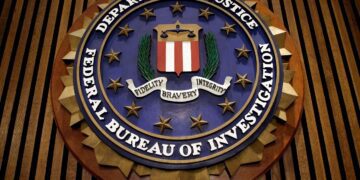CHICAGO – Thursday, May 27th, 2020, 75 days after his emergency declaration shutting down the state of Illinois to prevent the spread of COVID-19, Governor JB Pritzker focused his attention on residents living in long-term nursing facilities.
75 days into the COVID-19 health care crisis, the Illinois Department of Public Health (IDPH) filed emergency rules mandating long-term care facilities comply with infection control practices, including testing all residents and staff for COVID-19. The IDPH will require each facility "to develop and implement a testing plan to better protect vulnerable residents and ensure no facility is shirking its responsibilities for those in their care."
Nearly three months into the world-paralyzing crisis, long-term care facilitie became a priority to state health officials.
According to the IDPH's own website, there have been 14,862 confirmed COVID-19 cases among long-term residents and staff statewide, with 2,402 tragically dying from COVID-19. (The latest stats were posted May 23)
As of Friday afternoon, Illinois is reporting 117,455 COVID-19 cases, including 5,270 deaths.
That means that nearly 46% of Illinois COVID-19 deaths were among long-term care residents.
In DuPage County, of the 352 COVID-19 deaths, 288 were in long-term care facilities – 81% of the deaths. In Cook County, of the 1495 COVID-19 deaths and 2075 in Chicago, 1350 were in long-term care – a stunning 90% of those that lost their lives due to the virus were "sheltered-in-place" in state-licensed facilities.
A family in Kane County Illinois shared on Facebook their story of losing a loved one in a nursing home to COVID-19 in early May. With the writer's permission, we're sharing her story in her own words – with a follow-up planned in the near future.
Very few of you can say that you have a loved one who has contracted and died of COVID-19. I just lost my father to this disease, and there are some things I'd like to share with you.
I have been a proponent of managing this pandemic with honesty and fairness for all. I have believed that an Illinois lockdown to eradicate this disease is an undue burden on the entire population. I have believed that the governor's choice of "essential" has been capricious. None of that has changed with my father's death.
What has changed is my understanding of how we have completely gotten it wrong with the most vulnerable people that lockdowns were supposed to protect. My father had been in lockdown since late February, with no positive cases until April 28. Then we were informed that a resident was being sent back from the hospital as positive. Now 75 residents and 45 staff are positive and 10 residents have died.
I wish I would have saved the IDPH recommendations for nursing homes from a month ago. The guidelines were ludicrous. Only now are they saying that residents should be screened every 4-8 hours and that all should be tested. Shouldn't the people we considered the most vulnerable have gone to the front of the line? Why would a hospital send a positive resident back to a communal environment? Why did we spend millions to convert McCormick Place instead of doing what other states have done–using select facilities as nursing home COVID quarantine centers?
My father was sent to the ER over night Tuesday/Wednesday because we knew and his nurse knew something wasn't right. He got a "rapid" Covid test at 1:30 in the morning. By Wednesday evening we were called to come and see him because he was declining rapidly. So I dressed in full PPE (much respect to the people who do this every day) and went to my dad's quarantine room.
I did not expect what I saw. I won't go into detail, but he was suffering considerably. Nursing homes are not allowed to give certain comfort or pain meds without physician order so we spent 3+ hours getting the doc to prescribe something to help him and then had to pick it up ourselves. He has a DNR order, and because of that, the hospital would do nothing more for him when he was there two days before. Thankfully the medication calmed my father and six hours later he took his last breath. Only after, 48 hours since the rapid test, did results show he was positive for COVID. He also took a test on May 1 and was negative.
Nursing homes are not hospitals and yet they are expected to be. My father was at his residence for 18 months and I talked to staff who are mentally and emotionally devastated by what they are seeing and how they are all just sitting in a building with no fresh air or sun incubating and spreading this disease.
I can also tell you that they fear people don't understand that the disease, as they are seeing it, manifests itself differently in the elderly. They are seeing a very slow progression of lethargy and increased confusion over the course of a week to 10 days. Very hard to pick up in some people like my dad. While they were scrambling last weekend to create new units every day–one for negative, one for suspected, one for positive, one for recovering–rotating as many as 60 patients a day with no outside assistance–my Dad started to deteriorate. We didn't pick up on it until Tuesday. And then the virus overtook him and the respiratory symptoms started quickly. I thank God he didn't suffer long.
When my Mom died of pneumonia 18 months ago, her last symptoms were similar. I can't say whether COVID is more ravenous, but it certainly appears in my father's case that the progression to respiratory problems was very different. Another reason why nursing homes need more support from the outside. Moving 60 patients a day while losing 1/3 of your workforce and trying to track whether every single patient seems to be deteriorating is impossible. It's an untenable situation.
All of that to say we need to do better for the elderly in nursing homes if we truly care about keeping the most vulnerable well. I don't believe that means shutting down the entire state. The lockdown was intended to reduce the pressure on hospitals, but the pressure has been removed and transferred to facilities who have absolutely no means to manage it. They are being written off because elderly people die anyway. I think this is the biggest tragedy and lesson from this whole ordeal.
So wash your hands and wear a mask/gloves around the vulnerable. Not everyone is vulnerable. If you have a loved one in skilled nursing, advocate for these people and realize what is happening. Help the staff as much as you can.
If you don't have a loved one in skilled care, please consider "adopting" a facility and helping as you can. Send letters to residents–pictures, sentiments or anything–to let these people know they are not alone. The cute videos of folks visiting with loved ones through a window are not cute anymore. The sad sallow faces we have been seeing through panes of glass the last few weeks tear our hearts out, and we intend to do what we can for them in honor of my Dad–a man always ready to help someone.
Stay well my friends and love one another
More to come …








